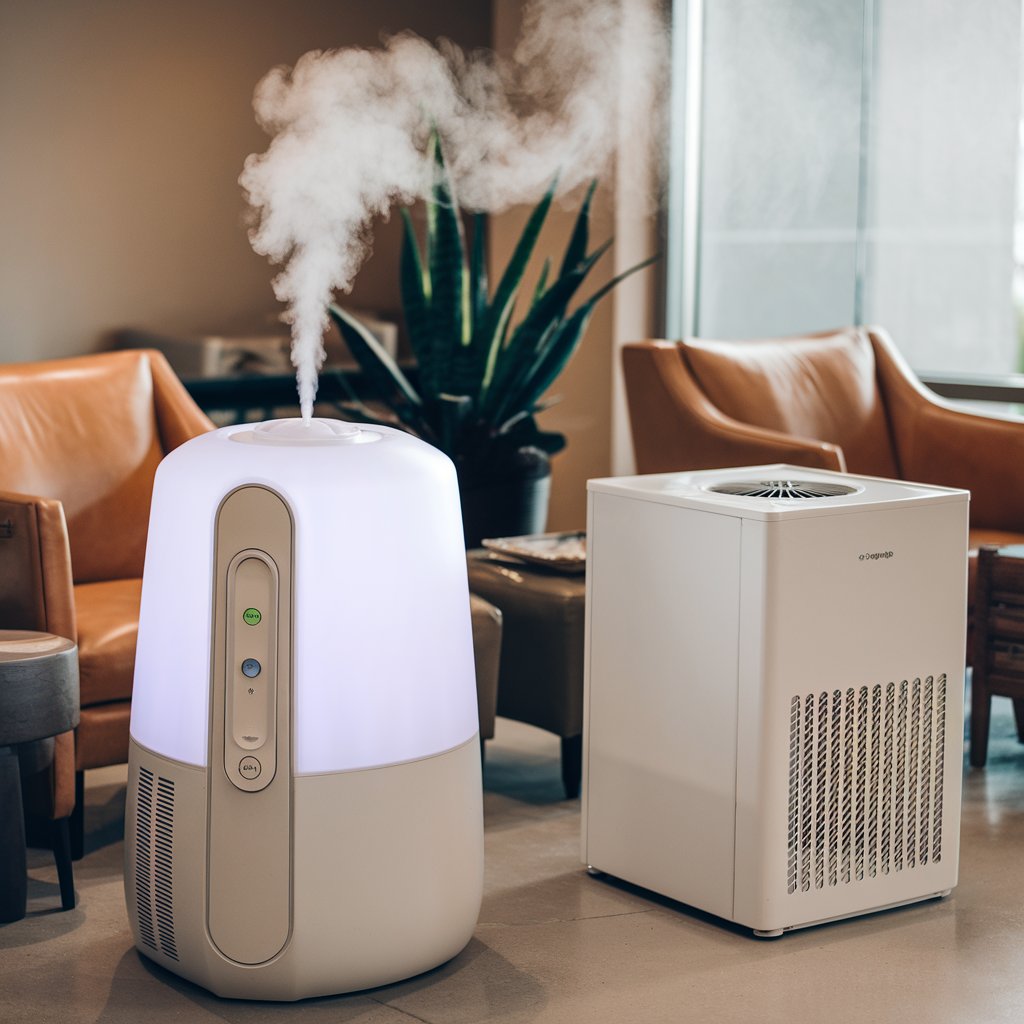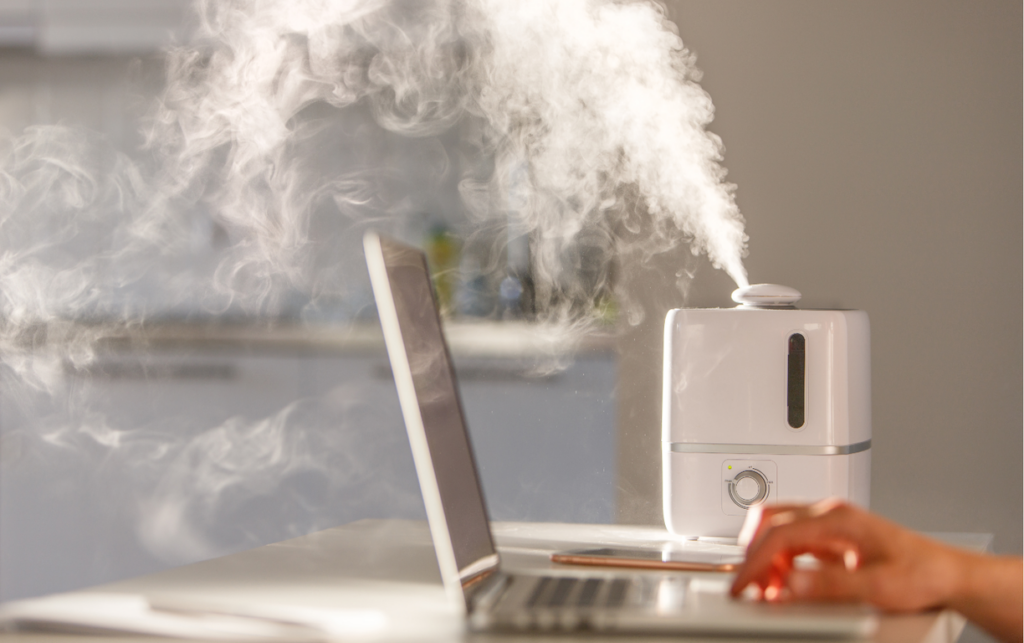Physical Address
304 North Cardinal St.
Dorchester Center, MA 02124
Physical Address
304 North Cardinal St.
Dorchester Center, MA 02124

When it comes to managing indoor air quality, the choice between a humidifier and a dehumidifier can feel overwhelming. I’ve often found myself wondering which device truly benefits my health and comfort. Humidifiers add moisture to the air, making it easier to breathe in dry conditions, while dehumidifiers tackle excess humidity that can lead to mold and discomfort.
Understanding the unique benef
When it comes to managing indoor air quality, the choice between a humidifier and a dehumidifier can feel overwhelming. I’ve often found myself wondering which device truly benefits my health and comfort. Humidifiers add moisture to the air, making it easier to breathe in dry conditions, while dehumidifiers tackle excess humidity that can lead to mold and discomfort.
Understanding the unique benefits of each device is crucial for creating a healthy living environment. Whether you’re battling dry winter air or high humidity in the summer, knowing which option suits your needs can transform your home into a sanctuary. Let’s dive into the pros and cons of each to help you make an informed decision.

Understanding humidifiers and dehumidifiers helps in effectively managing indoor air quality. These devices play crucial roles in maintaining a comfortable and healthy living environment.
A humidifier is a device that adds moisture to the air. It works by converting water into vapor, which increases humidity levels, alleviating issues caused by dry air. Humidifiers are especially beneficial in winter months or in arid climates where dry air can lead to discomfort, dry skin, and respiratory problems. Types of humidifiers include:
Humidifiers provide significant advantages for indoor environments, particularly during dry seasons or in arid regions. These devices enhance comfort and promote better health.
Increasing humidity levels positively impacts indoor air quality. A humidifier adds moisture to the air, reducing dust, allergens, and irritants. Moist air helps keep airborne particles heavier, allowing them to settle rather than remain suspended. Improved air quality leads to a more comfortable living space and can enhance the overall well-being.
Elevated humidity levels offer various health benefits. Humidifiers alleviate dry skin, reduce static electricity, and help maintain optimal respiratory function. Increased humidity can ease symptoms of dry nose, throat, and lips, minimizing irritation during cold months. Additionally, humidifiers support better sleep quality by maintaining a comfortable environment, making it easier to breathe at night. Studies indicate that adequate humidity can also reduce the spread of flu viruses, providing an extra layer of protection during flu season.
Dehumidifiers play a crucial role in enhancing indoor air quality and creating a comfortable living environment by managing moisture levels. Here are some key benefits associated with using a dehumidifier:
Dehumidifiers effectively reduce humidity levels, which prevents mold and mildew growth in homes. Mold thrives in environments with humidity levels above 60%. By maintaining humidity between 30% and 50%, dehumidifiers create conditions unfavorable for mold spores. This control reduces health risks associated with mold exposure, such as respiratory issues and allergic reactions.
Dehumidifiers protect home structures and furnishings from moisture damage. Excess humidity can lead to wood rot, warping, and peeling paint, compromising structural integrity. They also safeguard personal belongings, such as clothing and upholstery, from mildew and musty odors. This preservation prolongs the life of your investments and maintains the overall aesthetic of your home.
Understanding which device suits your needs involves evaluating different factors. Two key aspects include climate and personal health considerations.
Climate significantly influences whether a humidifier or dehumidifier is more appropriate. In cold, dry climates or during winter months, increasing humidity with a humidifier enhances comfort and alleviates dryness. Conversely, in warmer, humid conditions or during rainy seasons, using a dehumidifier helps maintain comfortable humidity levels, preventing excess moisture that can lead to mold growth. Seasonal changes can also shift humidity levels, so monitoring them will guide the choice of device.
Personal health plays a crucial role in the decision-making process. Individuals with respiratory conditions may benefit from using a humidifier, as moist air helps ease breathing and reduces irritation. Similarly, allergy sufferers might find relief from dry air by maintaining optimal humidity levels. However, those prone to mold allergies may require a dehumidifier to prevent moisture buildup and limit allergen exposure. Tailoring the device to personal health needs ensures a more comfortable living environment.
Choosing between a humidifier and a dehumidifier depends on specific indoor conditions and personal needs. Each device serves distinct purposes that cater to varying situations.
Humidifiers work best in environments where the air lacks moisture. Key situations include:
Choosing between a humidifier and a dehumidifier ultimately depends on your specific needs and living conditions. If you live in a dry climate or suffer from respiratory issues a humidifier can significantly improve your comfort and health. On the other hand if you face high humidity levels or mold problems a dehumidifier can protect your home and enhance air quality.
Understanding the unique benefits of each device empowers you to create a healthier indoor environment. By assessing your climate and personal health requirements you can make an informed decision that best suits your lifestyle. Investing in the right device can lead to a more comfortable and enjoyable living space.